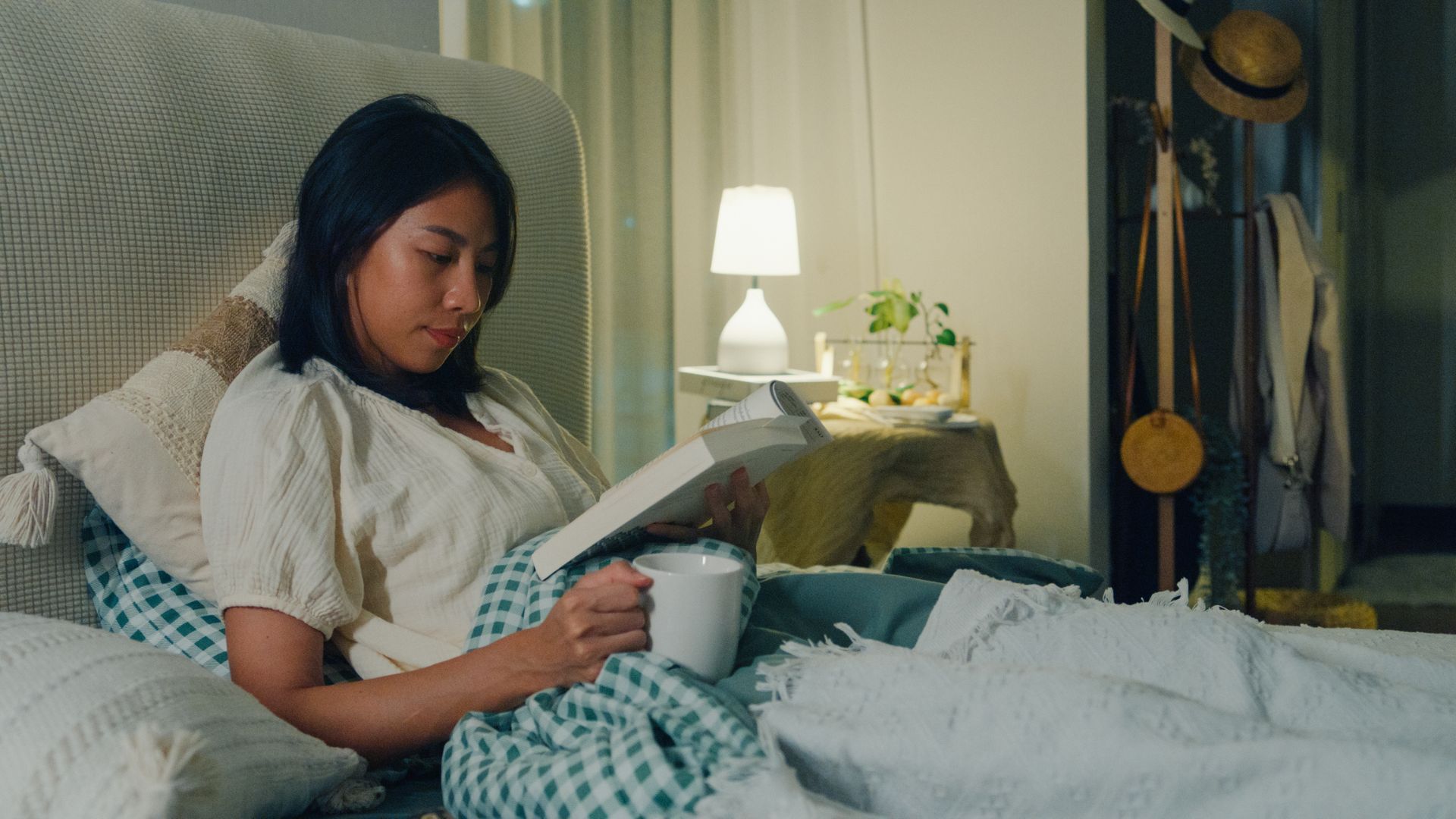
As someone who spends all day everyday researching all things sleep, I’ve come to know a thing or two about getting the best rest possible. And I think the most important factor in being able to fall asleep fast is a good nighttime routine. This not only signals to our minds and bodies that it’s time to wind down, but the right routine can kickstart melatonin production, leading to faster, deeper sleep.
While investing in the best mattress for your sleep needs should be everyone’s starting point (a comfy bed = quality sleep), there’s a lot you can do before your head hits the pillow to ensure you’re prioritizing not just the quantity of your sleep, but the quality.
I experience nighttime anxiety every week, like thousands of other people. Staring at the clock and counting down the hours before your alarm is set to go off is never fun. Throw in a racing heart rate and a constant stream of worried thoughts and sleep feels like a pipedream. But since I’ve put a strict nighttime routine in place, I’ve been able to fall asleep fast every night and, often, stay asleep.
How a nighttime routine helps you sleep better
Having a nighttime routine may sound slightly infantile, but they can be incredibly effective in helping people fall asleep and stay asleep. And they're particularly useful for sleepers with anxiety, like me.
Humans are creatures of habit, with routine making us feel safe and content. By performing the same activities every night, you are signalling to your brain that you are in safe territory, which can help ease anxiety and kickstart the wind down process for bed.
Aside from this, many elements of a nighttime routine are naturally calming, both for the body and the mind. This allows the brain to function as it should, releasing melatonin and eventually ‘switching off’ for sleep.
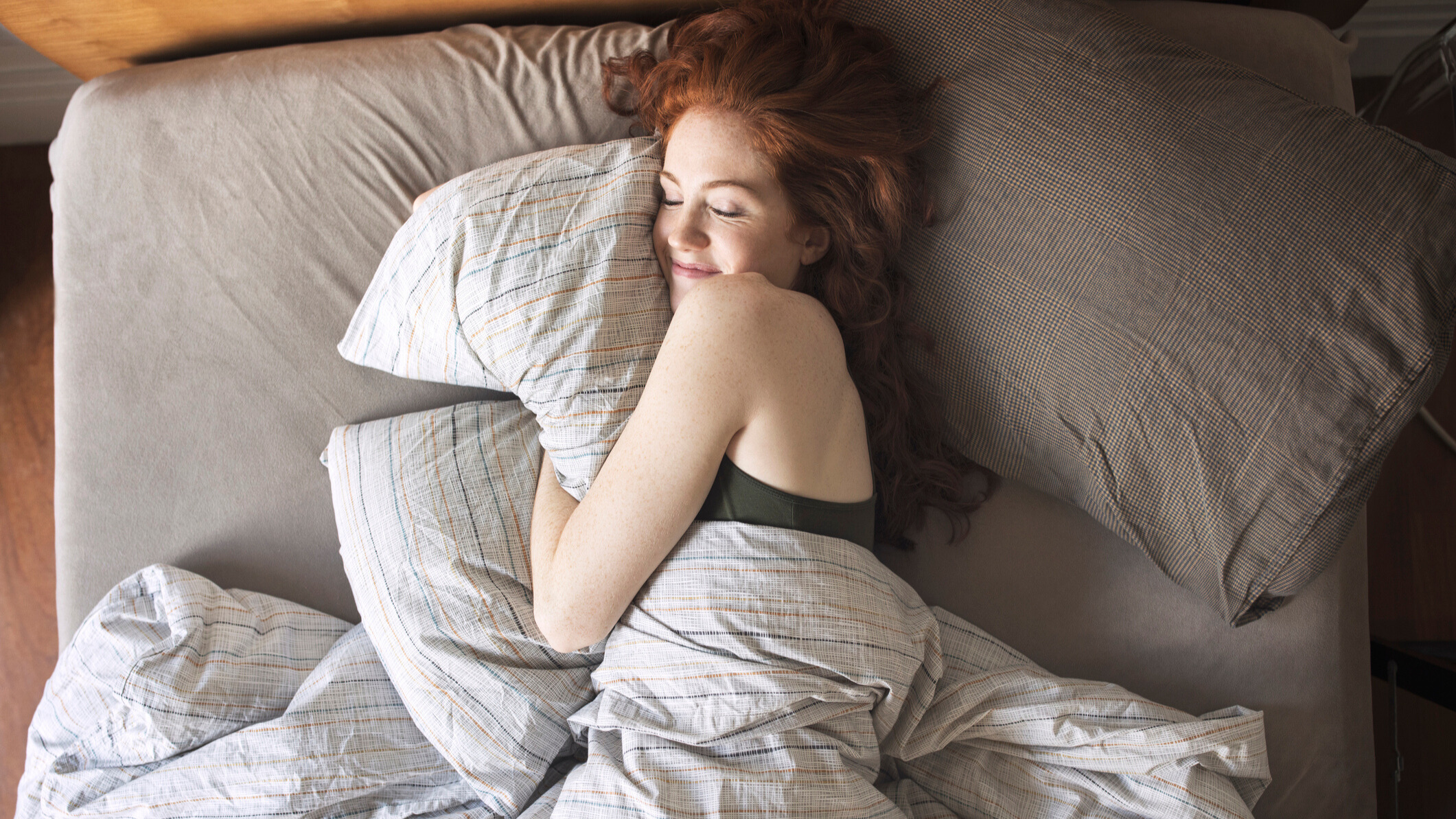
My nighttime routine
After thorough research, I decided to create my own nighttime routine. For me, I wanted to focus on calming activities as well as practical steps to reduce anxiety at night. I’ve used this simple 4-step routine for months now, and I fall asleep quickly almost every night and enjoy deep, quality sleep.
1. I organize myself and my apartment
My first step is to organize myself. This means first organizing what I’ll need for the next day. I pack my bag for work, choose the clothes I’m going to wear and hang them in my bathroom, and set my makeup, hairbrushes, and moisturiser aside so they’re easy to find in the morning. As someone who is admittedly quite scatter brained, this level of organization is already very calming!
Next, I do a brief tidy up of the house and bedroom. Nothing drastic, but I ensure the kitchen is clean and the living room is tidy. I put away any clothes in the bedroom, make my bed, and dim the lights. Sometimes I’ll even light an incense stick or seasonal candle. It is amazing how much a clean, calm environment can help you keep a calm mindset.
2. I take a long bath
Now I know that there is nothing left on my subconscious ‘to do list’, it’s time for the ultimate relaxation. I run a deep, hot bath, switch off the main bathroom light and instead use candles dotted around the bath. I often add an essential oil to the water so the steam has a relaxing fragrance. There are some great studies that prove the effectiveness of essential oils for promoting sleep, particularly lavender.
Another benefit of taking a hot shower or bath before bed is changing your core body temperature. Naturally, before we fall asleep, our core body temperature drops. This is a key signal to our brain that it is time to rest. When we move from a hot bathroom to a cooler bedroom, the same happens. Our body temperature lowers and you’ll start to feel sleepy.
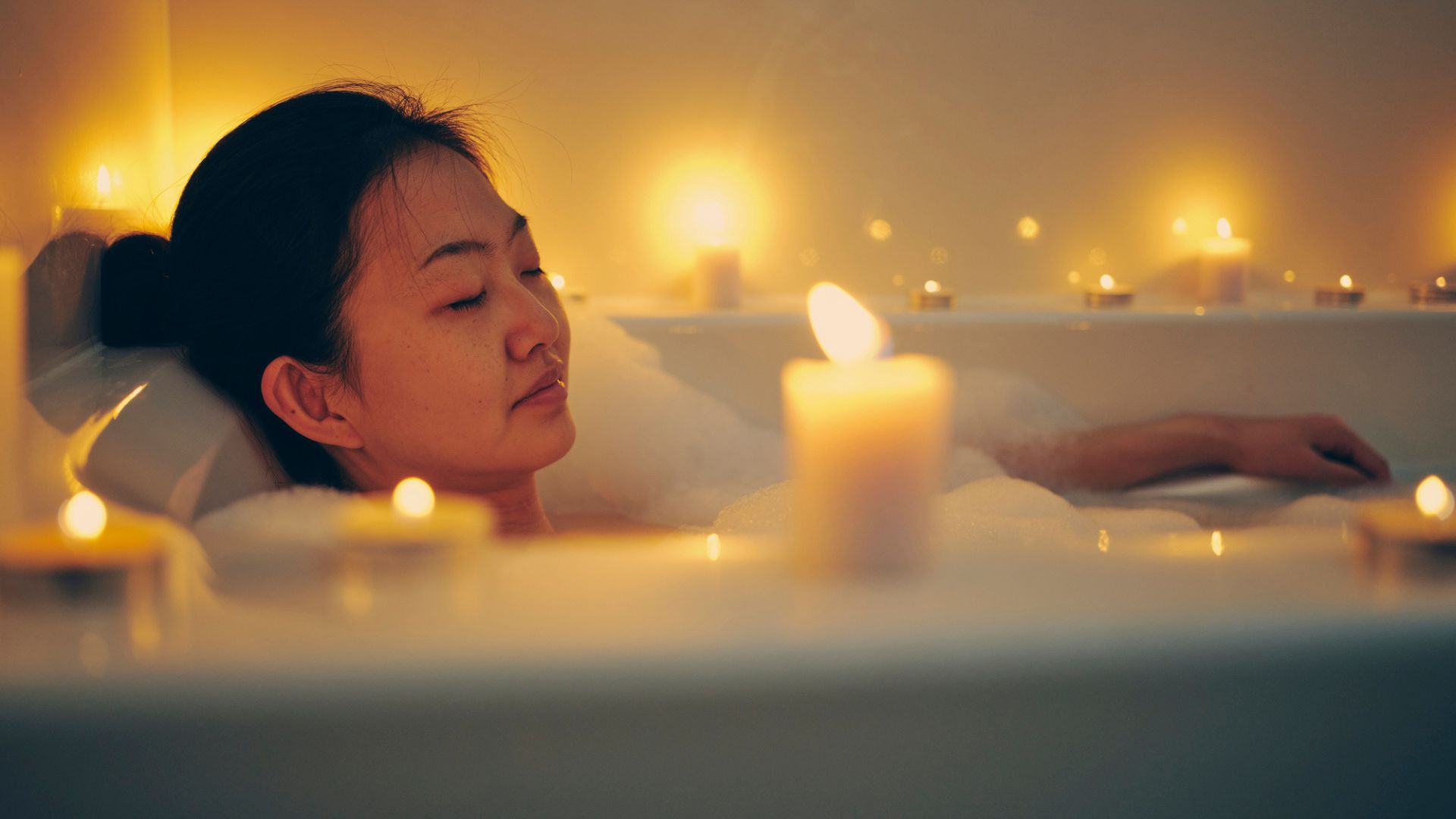
3. I get dressed for bed
After slipping into some comfy pyjamas, I get all of my ‘before bed’ activities out of the way. For me, this means using the toilet, brushing my teeth and moisturising.
One common nighttime routine mistake many people make is leaving teeth cleaning until they’re about to drop off. The process of getting up and out of bed, turning the bathroom light on, and brushing your teeth can undo all of the good unwinding and relaxing you were doing to prepare for sleep.
I also make sure I have a full bottle of water on my bedside table and some good earplugs in case there’s any ambient noise during the night. I find that by covering all bases, my anxiety is generally lower.
4. I read a book
Now, I’ve done everything I need to do, I can gently drift off. Instead of scrolling through social media and becoming overstimulated, I opt to read a book. Recreational reading has been found to reduce psychological distress as well as calming the body and the mind.
It’s a great distraction from any anxious thoughts I have, and the quiet time gives my brain space to relax, rather than being constantly stimulated as it usually is throughout the day. Sometimes, as other anxious people or people who experience other mental health problems might relate to, silence isn’t always golden. So, if I’m feeling particularly vulnerable to anxiety or low mood, I’ll have the radio on low for extra comfort.
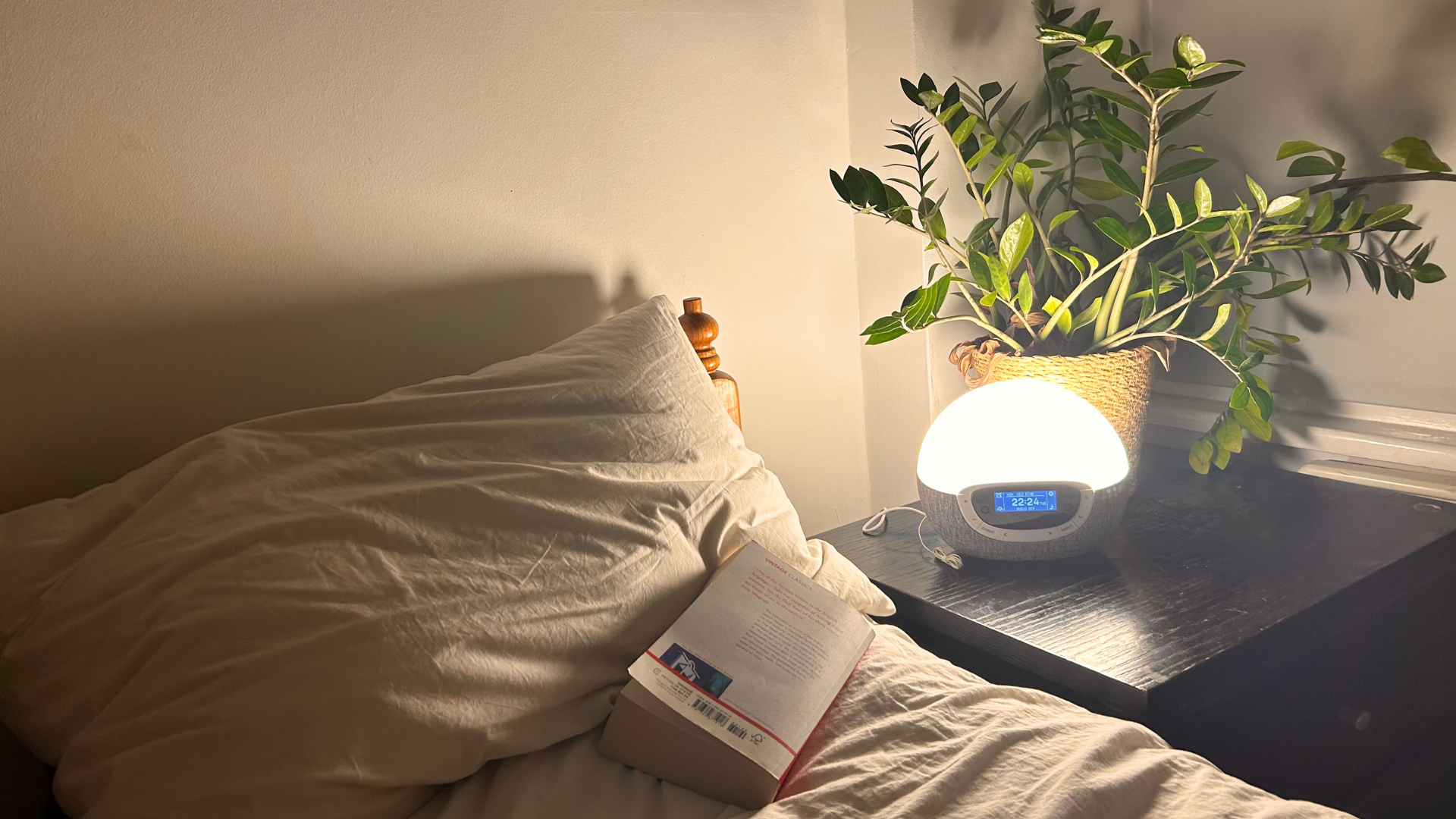
The best tips I've learnt to fall asleep fast
Aside from a solid bedtime routine, I’ve learnt many tips for falling asleep fast. These are the ones that have worked best for me.
1. Cognitive shuffling
If I could recommend one method for falling asleep fast, this would be it. Cognitive shuffling means purposefully scrambling your thoughts to fast track the natural process of your brain switching off. By ‘switching off,’ we mean it stops trying to rationalize and make sense of your thoughts and external stimuli.
It’s quick and easy. Simply think of a random object and visualize it. Then think of another, entirely unrelated object and visualize that. Continue doing this with as many random objects as possible. This confuses your brain until it eventually gives up trying to make sense of your thoughts and triggers sleep.
I use this method almost every night, and it sends me to sleep within 5 minutes. So it’s definitely worth trying!
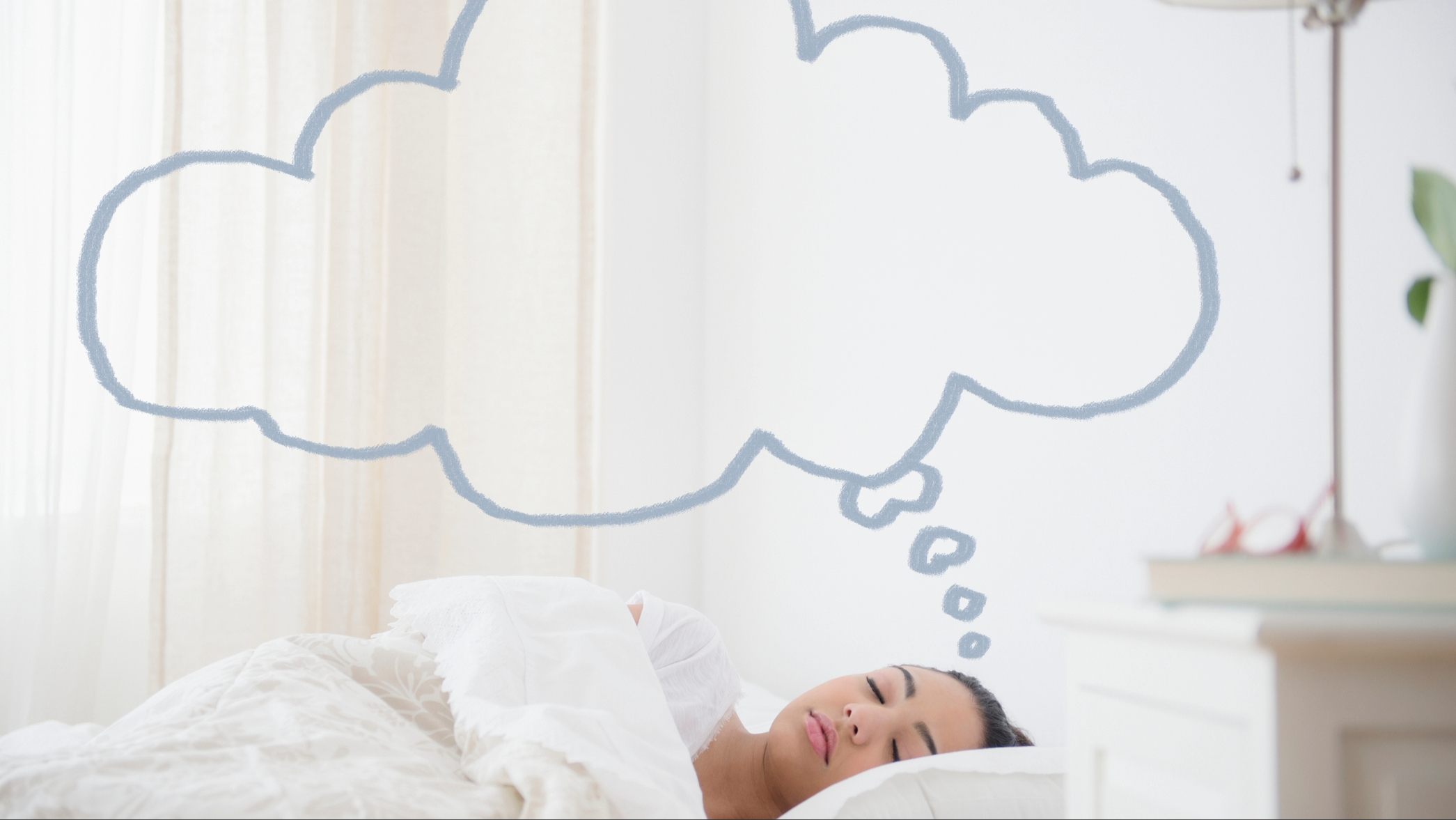
2. Good sleep hygiene
Sleep hygiene refers to the habits and activities you have that can either positively affect your sleep or negatively affect it. It can include things like your diet, your environment, and your hobbies.
Some examples of good sleep hygiene include eating three balanced meals throughout the day, using your bedroom just for relaxation, and having a screen-free hour before bed. Poor sleep hygiene may mean eating sugary snacks late at night, drinking alcohol in the evenings and using your bedroom for work.
Review your daily habits and try to identify any that may be having a negative impact on your sleep.
3. A consistent sleep schedule
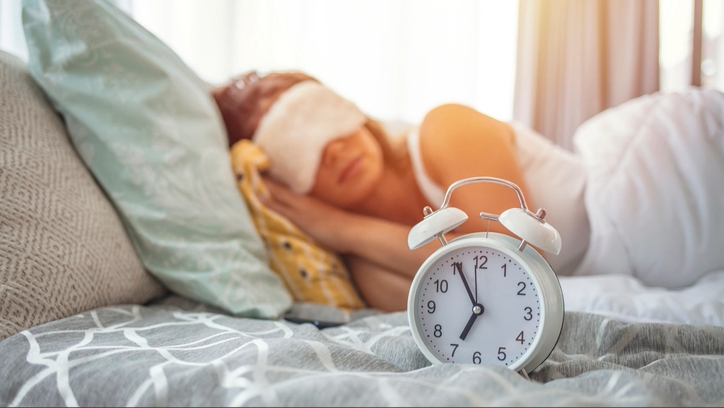
Consistency really is key when it comes to bedtimes and wakeup times. While it’s tempting to sleep in on the weekends or shift your bedtime later, you’ll greatly benefit from waking up and going to sleep at a similar time every day.
This is because a sleep schedule helps regulate our circadian rhythm. This is when we naturally feel energetic or sleepy throughout the day. If our bodies and minds know when it’s time to wind down and when it’s time to get going, it’s easier to regulate our energy levels and feel consistently motivated throughout the day.
Don’t beat yourself up if you find it difficult to stick to. I still stay up later at the weekends. After all, I'm still young! But I have found keeping my schedule consistent during the week and making the changes less drastic during the weekends have helped my sleep and energy levels massively.







